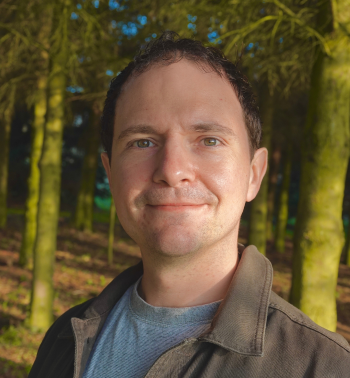15 May 2025
What is your role?
I am a Clinical Lecturer and Honorary Neurology Consultant. This means I spend most of my time working on research projects but also spend one day per week reviewing patients in the hospital clinic.
On the research side, I currently lead on two main studies evaluating novel clinical biomarkers for an incurable neurodegenerative disease known as motor neuron disease (MND). My group’s work focuses on a technique that records muscular electrical activity in a noninvasive way. We hope that this approach will tell us if newly tested drugs are slowing disease progression. I am also the principal investigator at King’s College London for an international clinical trial, and I oversee an early access programme that provides a novel disease-modifying treatment for a subset of our MND patients with a specific genetic cause.
What do you enjoy most about your role?
Although the nature of MND means that there are many challenging components to my job, I enjoy supporting patients and their families through one of the most difficult things anyone can ever experience.
It is hugely fulfilling when I am able to talk through the various problems with patients, and we are able to make a clear plan together. This might involve discussion with one of our expert therapists or nurses, the trial of a symptomatic treatment, or referral to our expanding clinical trials team. And now, of course, we are able to offer something brand-new to a small percentage of patients carrying a specific mutation: an effective treatment! This is a hugely rewarding part of my job.
But all of the above is bolstered by our work on the research side. It is invaluable to know that the studies we are carrying out today may influence what we are able to offer to newly diagnosed patients in years to come.
What inspired you to get into this work?
It has to be the patients. When you see the devastating effect that MND has on patients, as it relentlessly takes away the core neurological functions we all rely upon on a daily basis, it inspires you to try to make a difference. I just needed the right opportunity to get started.
Indeed, it was during my first year of specialist clinical training in neurology at King’s College London when I met Prof Chris Shaw in the motor nerve clinic. He opened my eyes to the wide range of research that is being done in the field. And I began to appreciate more and more that medical research isn’t all about hours looking down a microscope or growing cells in a petri dish. Instead, Prof Shaw taught me how I could work directly with patients for my PhD. And even more than that, I could incorporate my longstanding interest in mathematics in the form of computer coding and statistical analysis.
After collating some pilot data through a very generous donation made to Prof Shaw’s lab, I was able to devise my own PhD project, which I was very grateful to receive further funding for. And that’s how my clinical research journey started.
What are the benefits of working in partnership?
There are simply too many benefits to mention. Partnerships spawn new ideas, new knowledge, new approaches. They bring unique combinations of skills together that no single person or even a single research group can ever possess by themselves. They educate the youthful and wizened alike, they carry the momentum required to complete larger projects, and they allow otherwise insurmountable obstacles to be overcome. They better equip us to empathise, socialise and revolutionise. They allow a greater number of voices to be heard by a greater number of ears.
And in so doing, partnerships forge a faster rate of success. But most of all, they allow us to enjoy what we do. Because without that, most of our productivity would simply grind to a halt.
What would be your one career top tip?
To always celebrate the smaller wins, whether it’s being awarded a conference travel grant, being shortlisted for a departmental poster prize or simply receiving positive feedback after a lab meeting. Because without appropriate reflection of the considerable time and effort that goes into each and every one of these things, the larger successes, such as securing a fellowship or landing your next publication, will be much harder to come by.
Find out more about the work of KHP Neurosciences.





